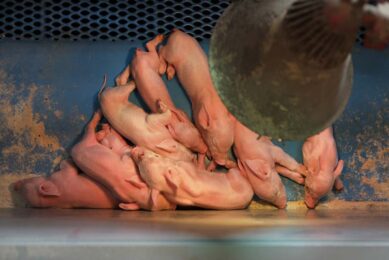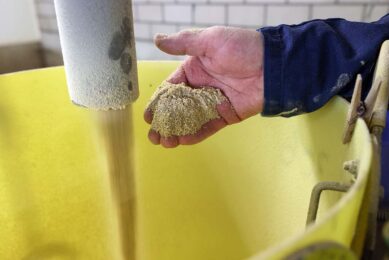Study to enhance acute post-weaning feed intake in pigs
Paying closer attention to nutrition in pre- and post-weaning pigs promises to pay dividends for pork producers thanks to enhanced intestinal and immune development, survivability and performance.
South Australian Megan Edwards completed her PhD this month on early nutrition and the weaning transition.
In four experiments under commercial conditions, Dr Edwards assessed the influence of various nutritional strategies, including extrusion as an alternative milling process, amino acid supplementation, non-nutritional effects of creep feed and the use of two nutraceutical products, spray-dried porcine plasma and a yeast derived protein meal.
The nutritional strategies which enhanced survivability and immune competence in newly weaned pigs included supplemental amino acids at weaning, offering creep diets containing spray-dried porcine plasma and pre-weaning exposure to creep feed.
Spray-dried porcine plasma
Of the strategies examined, including spray-dried porcine plasma, most effectively maintained post-weaning feed intake and growth performance in the acute post-weaning period.
“These benefits were reflected in improved intestinal integrity, pancreatic digestive enzyme activity and colonic health,” she said.
How creep feed exposure influenced growth performance during the suckling phase depended on a range of inter-dependent factors, including lactation stage and litter size.
The non-nutritive benefits were complimentary to subsequent survivability of weaner pigs, with benefits enhanced in progeny of primiparous sows.
Creep feed
Edwards noted that the importance of creep feed composition became more evident during the acute post-weaning phase.
The results also highlight the nutritive and non-nutritive roles of early nutrition in piglet development.
Beyond providing nutrients for growth, positive early nutritional interventions can promote feed intake, improve regulation of the immune system, rapidly stabilise gastrointestinal mircobiota and limit protein malnutrition.
“Another finding was the benefits of the nutritional strategies tested not only influenced gastric diseases, but also weaner susceptibility to respiratory diseases,” Edwards said.
The research was supported by Australia’s Pork Cooperative Research Centre (CRC).
Related website:
• Pork CRC
Join 18,000+ subscribers
Subscribe to our newsletter to stay updated about all the need-to-know content in the pigsector, three times a week. Beheer
Beheer










 WP Admin
WP Admin  Bewerk bericht
Bewerk bericht